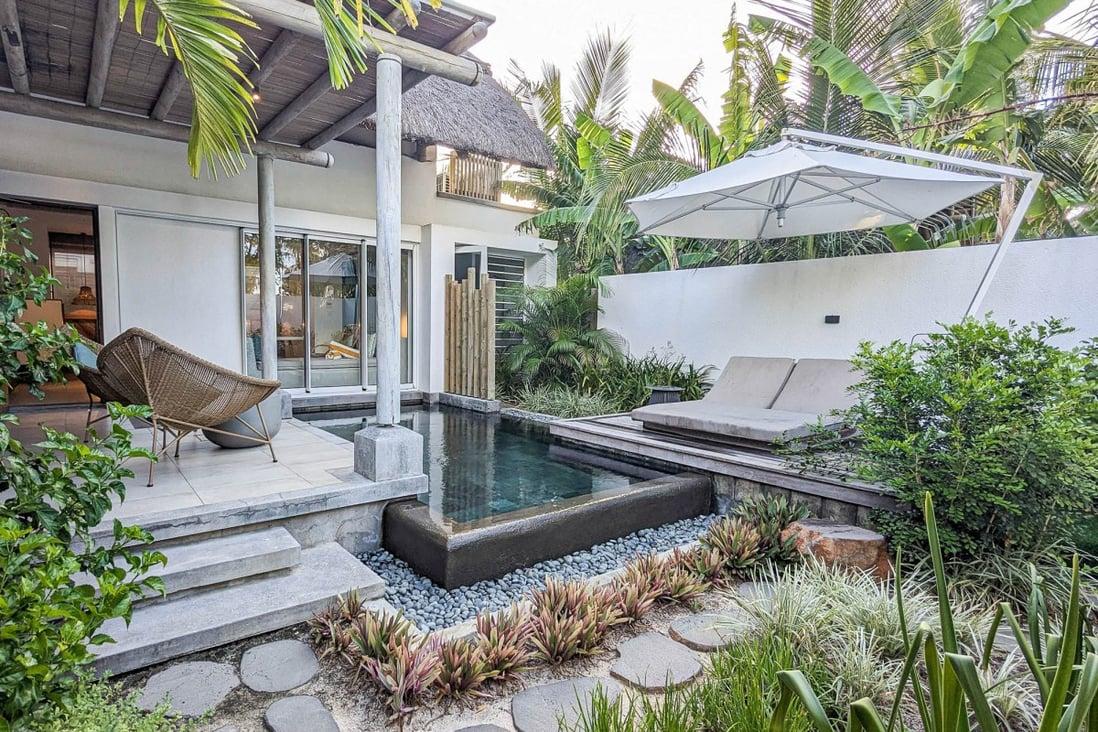
Africa-Press – Mauritius. By Steph Dyson
In the 16th century, when Portuguese sailors anchored at what would become known as Mauritius, they encountered a puzzling creature. Although it had the physiological necessities of a bird – primarily, wings – a lack of predators had left it without the most characteristic ability of a bird: flight.
That inability, coupled with a fearlessness of humans and the animals they brought with them, signed this hapless creature’s death warrant. By 1690, the dodo had disappeared from the island, consigned to the chronicles as a curious footnote in Europe’s Age of Discovery.
More recently, it has come to symbolise extinction at the hands of humans. Fast forward to today and the island of Mauritius again sits at the forefront of potential extinction caused by humankind, this time because of climate breakdown.
The Indian Ocean island is not unique when it comes to the impact of the climate emergency. But, like all Small Island Developing States – which are collectively responsible for just one per cent of global greenhouse gas emissions but are typically more vulnerable to the effects – it faces a slew of challenges.
Temperatures and sea levels in Mauritius are rising faster than the global average and the government estimates that within the next 50 years, half of the island’s beaches – those oh-so-tempting stretches of white sand – will be lost.
None of this information is new. At COP15, held in Copenhagen in 2009, developed countries committed to providing US$100 billion of financial aid per year by 2020 to help developing countries adapt to climate change. That target was missed. On Mauritius’ idyllic coast, all-inclusive hotels beckon holidaymakers, but an awareness of what may come looms large.
Sea walls made of volcanic rock and built to battle land erosion are conspicuous, having been introduced alongside projects to restore coral reefs – the first line of defence against rising seas – mangroves and dunes.
Mauritius faces a paradox of sorts. According to data from the Economist Intelligence Unit, tourism in non-pandemic times accounts for about 24 per cent of Mauritius’ GDP and one in 10 jobs.
Couple this with the fact that two-thirds of all inbound tourists hail from Europe, and thus travel long haul, and the nation is faced with an environmentally troubling circle that refuses to be squared.
It is a question that Attitude, a Mauritian-owned chain of nine hotels in the northeast of the 2,040 sq km (790 square mile) island, has been trying to answer.
At Sunrise Attitude, on the crescent-moon beach of Belle Mare, the usual concessions to environmental sustainability are evident: single-use plastic is non-existent, with refillable water bottles available; food waste is sent to local farmers for compost; QR codes replace paper menus.
Even the minibars, a hotel staple, have been replaced with stores where guests pick up items they actually want. Eco-commitments are writ large – literally – on boards within the hotel grounds.
As you walk around the inviting pools and restaurants, you can see how the chain’s approach to sustainability engages with both the pressing need to reduce carbon emissions and the social and economic argument for tourism.
A full refit of Sunrise Attitude and Lagoon Attitude (the revamp of a third property in the chain is planned for later this year) has seen a minimum of 75 per cent of the hotels’ furniture sourced from local artisans.
Delicate wicker fans, chairs and lampshades give a nod to traditional Mauritian basket weaving, while each hotel has an Otentik Bazar, a boutique stocked with locally made jewellery, organic beauty products and traditionally handwoven bags.
These are supplied by My Pop-Up Store, a platform supporting Mauritian craftsmanship. At Attitude’s five-star property Paradise Cove, where vast bedrooms grant sweeping views over the bathtub-warm waters of a cove that lives up to its name, more profound change is afoot.
“If you want to influence the way people eat, you’ve got to start with the chefs,” says Alexis Gauthier, the designer of Paradise Cove’s vegan tasting menu.
It is estimated that meat accounts for almost 60 per cent of the greenhouse-gas emissions attributable to the food-production industry. The rearing of animals for meat also results in significant deforestation and biodiversity loss.
The chef-patron of London-based Gauthier Soho, Gauthier made headlines – and lost his restaurant its Michelin star in 2021 – when he removed all animal products from the menu.
The following year, Attitude approached Gauthier with a proposition: to design a vegan tasting menu and train the hotels’ chefs in plant-based cooking.
Beside an infinity pool overlooking the ocean, I sample the fruits of their labour at a grand unveiling of the new menu: a meat-free take on Mauritian cuisine that unites local ingredients – the likes of giraumon, chouchou and daikon – with French techniques.
The slow, patient reduction of seaweed with onion and white wine recreates the saltiness of the ocean beneath us before I even notice the absence of seafood, a staple of Mauritian cuisine.
“You can express the beauty of the island and you can do it in a way that has no impact,” Gauthier stresses.
year, 30 per cent of dishes in Attitude’s four four-star hotels and Paradise Cove will be vegan or vegetarian, thanks to this collaboration. This will filter down into the chain’s four three-star hotels, with a continued broadening of these menus.
“It’s a big thing to reduce our impact,” says Juliette Deloustal, Attitude’s sustainability manager. Reducing food miles while supporting the local economy is another priority.
Half of all food and drink served in the hotels now meets Mauritius’ “Made in Moris” standard, which certifies products manufactured on the island. Attitude also buys directly from local organic farms, including that of Mayaven and Sheila Poinen.
The husband-and-wife team supply three hotels with 15 types of fruit and vegetable grown on their four-hectare (10-acre) farm. Mayaven started as a gardener at Attitude before asking for help in 2016 to found his own business.
A contract to supply Attitude with produce enabled them to get a bank loan “and then all of this developed!” says Sheila, gesturing towards their carefully organised land. The business now employs 20 workers, while their daughter is training as an accountant and plans to work in the company when she graduates.
The Poinens plant seed varieties bred to self-pollinate and withstand rising temperatures, while increasingly frequent cyclones have forced them to use polytunnels to protect their crops. Mayaven and Sheila Poinen’s polytunnel protects their crops. Photo: Steph Dyson
It is clear that Attitude’s local focus – not only is it Mauritian-owned, but 98 per cent of the hotel group’s “family members” hail from the island – has reduced “leakage”, a term that refers to the amount of tourist expenditure denied a destination by its foreign-owned airlines, hotels and operators.
A 2014 United Nations World Tourism Organisation report found that from a typical all-inclusive holiday package, up to 80 per cent of travel expenditure leaves the visited country as a result of leakage.
All-inclusive properties rarely motivate tourists to spend money outside the hotel. Armed with a book and a cold drink, I can see the appeal of whiling away my time by the pool, but leaving Sunrise Attitude is actively encouraged.
Attitude’s Otentik Experiences – self-guided food tours, dinners and cooking classes, and traditional music nights – offer guests insight into a Mauritius beyond the sun, sea and sand. I sign up with other guests for one of the Otentik Dinners, a meal hosted at the home of a staff member.
I am not told whose home I will be visiting but I do know that, thanks to Mauritius’ wide-ranging cultural heritage – 65 per cent of the population is of Indian descent while Creole and Chinese make up most of the rest – the experience varies depending on your host.
Mine is revealed as the enthusiastic Conchita Fortuno, alongside her husband, Daniel. Of Creole descent, Fortuno works in the kitchens of Tropical Attitude and every Wednesday hosts up to 12 hotel guests, “Sometimes with my mother, sometimes my sister and her husband, or my cousin,” she says.
From each visitor, she earns 700 Mauritius rupees (US$15), Attitude taking nothing. She clearly delights in her role as host, showing us how to make piquant chilli bites from gram flour and laughing at my attempts to follow her instructions.
We sit with her family and friends – Daniel and their son, the son’s girlfriend and a friend of Conchita’s with her boyfriend – on a long table in the kitchen of her first-floor flat in the Trou d’Eau Douce region, on Mauritius’ east coast.
We are served silky-textured breadfruit, curried butter beans and a thick, piquant masala sauce swimming with seafood. Community-involving experiences could be one of the keys to making tourism a more sustainable, positive force.
Daren Moodely, project coordinator of the Mauritius Tourism Authority and Sustainable Island Mauritius, a European Union-funded project helping tourist enterprises employ sustainable practices, thinks that to ignore the industry’s positives is to forget the bigger picture.
“It brings economic benefits, social benefits,” he says, arguing that progress would be for tourists to spend longer on the island and head “inland rather than going only onto the coastline”. When it comes to mitigating the impact of long-haul flights, spending more time – and money – in a destination can help.
Tourists currently stay an average of 12 days in Mauritius and the Tourism Authority “wants tourists who spend more [money] on the island rather than having more tourists who spend less”, explains Moodely.
While Mauritius continues to wait for governments to meet COP15 funding commitments, the rest of us have some soul-searching to do. Have we learned from the fate of the dodo? A tourism industry run by local companies, benefiting the local economy and offering true insight into Mauritius might help answer that question.
For More News And Analysis About Mauritius Follow Africa-Press






